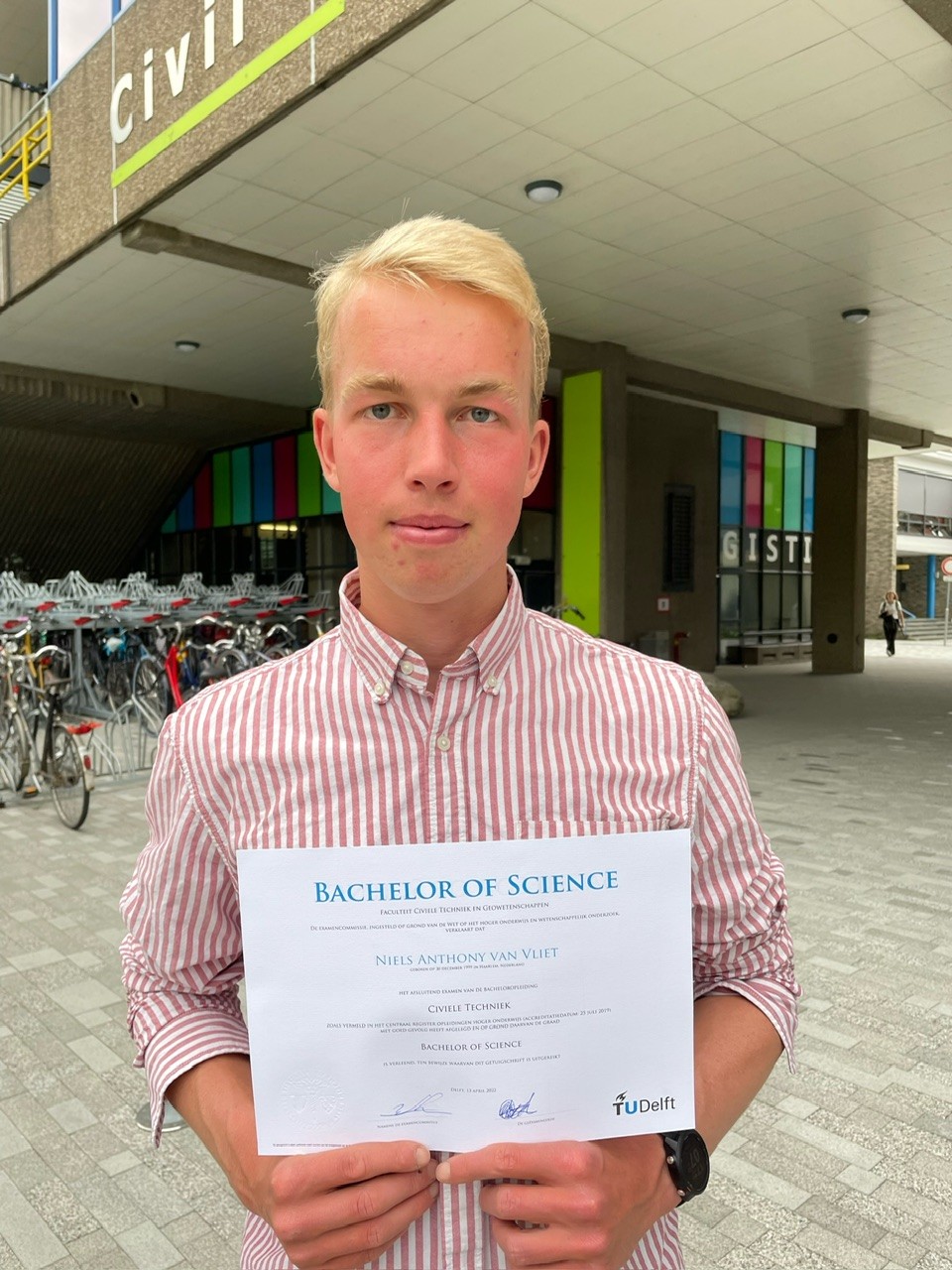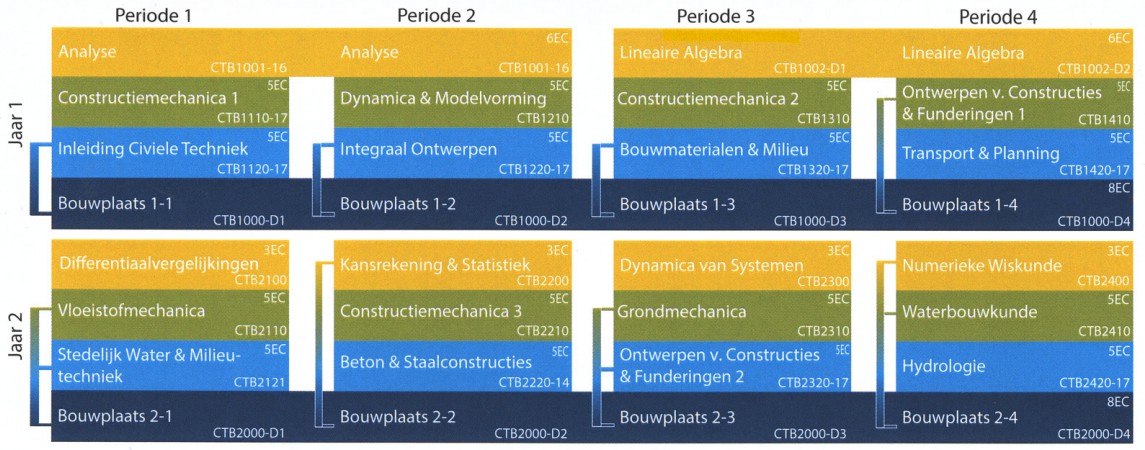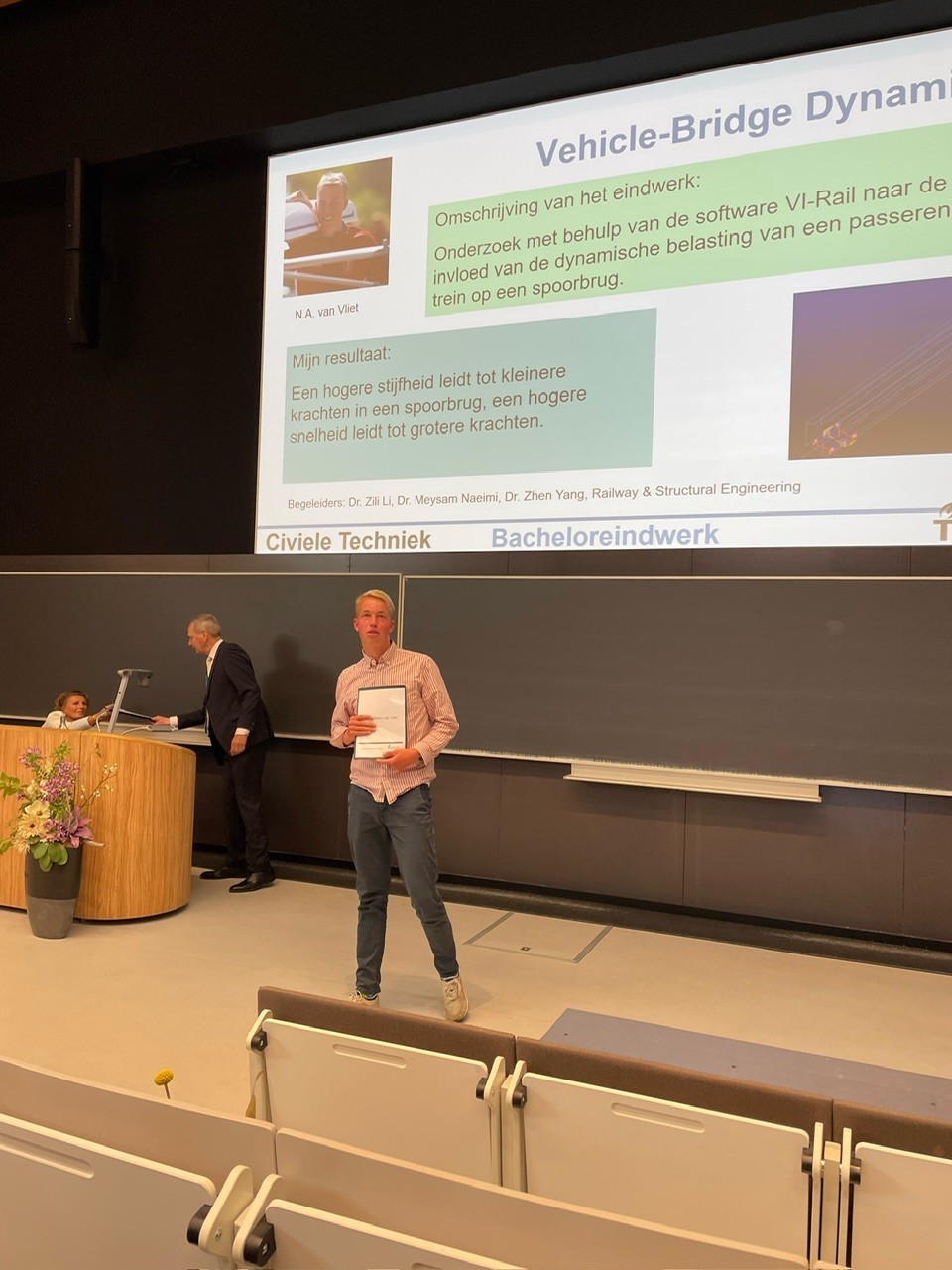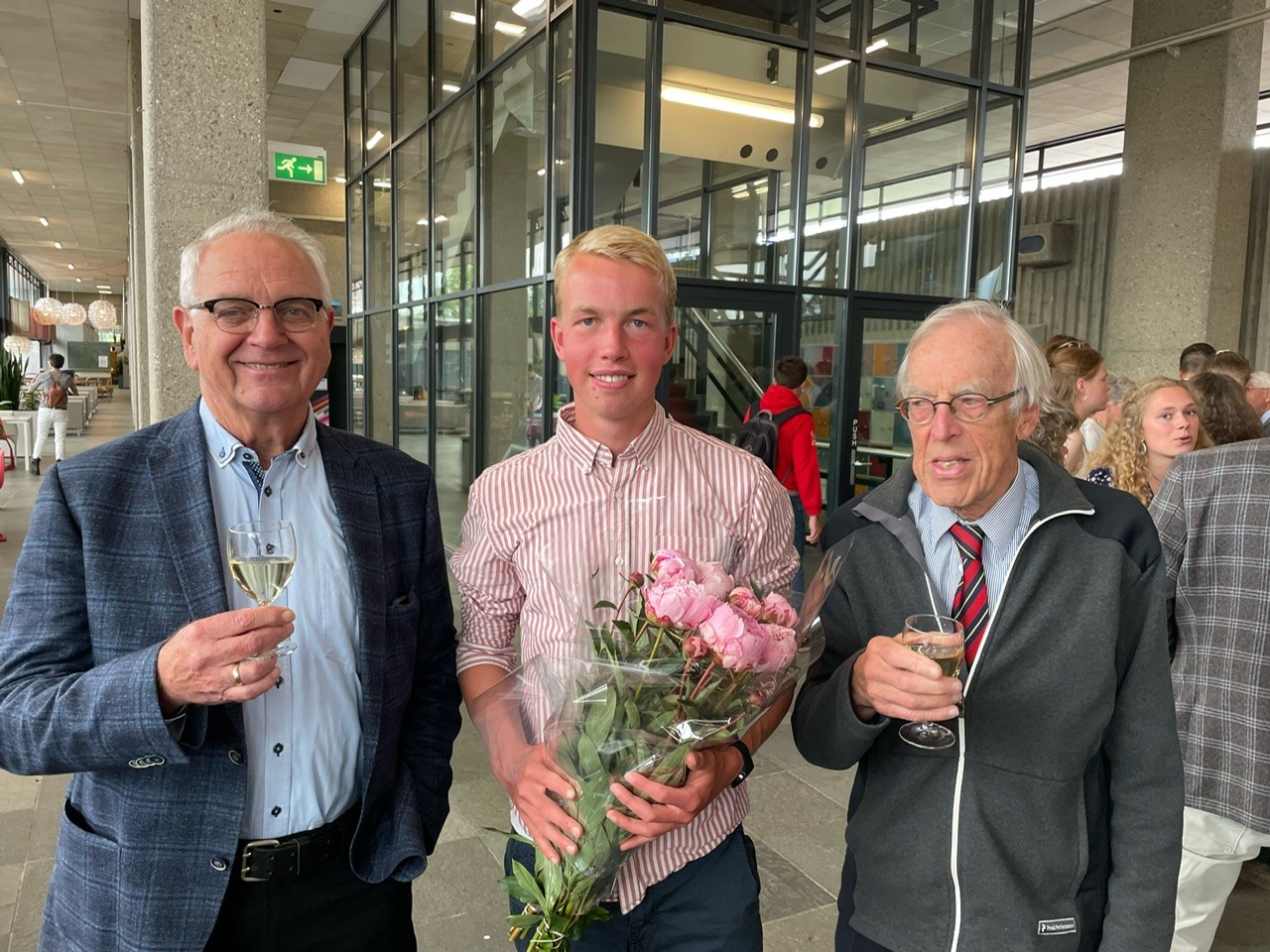BSc Civil Engineering#

Fig. 6 Me with my BSc diploma
after the awards ceremony#
As a BSc student in Civil Engineering at TU Delft, I followed a diverse and challenging curriculum that combined technical depth with practical application. The first two years (BSc curriculum year 1 and 2) were structured into ten-week periods, during which I took courses in mathemics, mechanics, application courses and practicals with software and programming in Python. I developed strong analytical skills and learned how to use software tools for modeling and creating 3D technical drawings.

Fig. 7 BSc curriculum year 1 and 2#
In my third year (BSc curriculum year 3), I had the opportunity to explore a minor, allowing me to broaden my knowledge depending on my interests. I then selected elective courses that aligned with my personal and professional goals. As I liked the structural mechanics courses most, and I knew that I wanted to follow the track Structural Engineering in the MSc program, I choose Structural Mechanics 4. The program culminated in the Bachelor End Project (BEP), where I applied everything I had learned in a final research or design assignment, similar in nature to a high-level school research project. Upon completion, I earned the title Bachelor of Science (BSc), equipped with a solid foundation in civil engineering and a wide set of academic and professional skills.

Fig. 8 BSc curriculum year 3#
Minor: Engineering for Large-Scale Energy Conversion and Storage (ELECS)#
I choose this minor as I was interested in large energy systems and renewable energies.
Read about it here… Minor
Electives#
Structural Mechanics 4 (CTB3330)
Hydraulic Structures (CTB3355)
Water Systems Analysis (CTB3360)
Bachelor End Project (BEP)#
I choose the following subject for my BEP:
Vehicle-bridge dynamics
Theoretical modelling and numerical simulation of vehicle-bridge dynamics using VI-Rail
Read about it here… BEP


